Far more money has been lost by investors trying to anticipate corrections
than lost in the corrections themselves.
—Peter Lynch
Fear can be addictive.
It’s the reason why people love to watch horror movies.
It’s the reason why people love to ride rollercoasters.
It’s also the reason why people love talking about stock market crashes.
I suspect that there’s something about racing hearts and sweaty palms that keeps folks coming back for more.
It’s what I like to call ‘angertainment’.
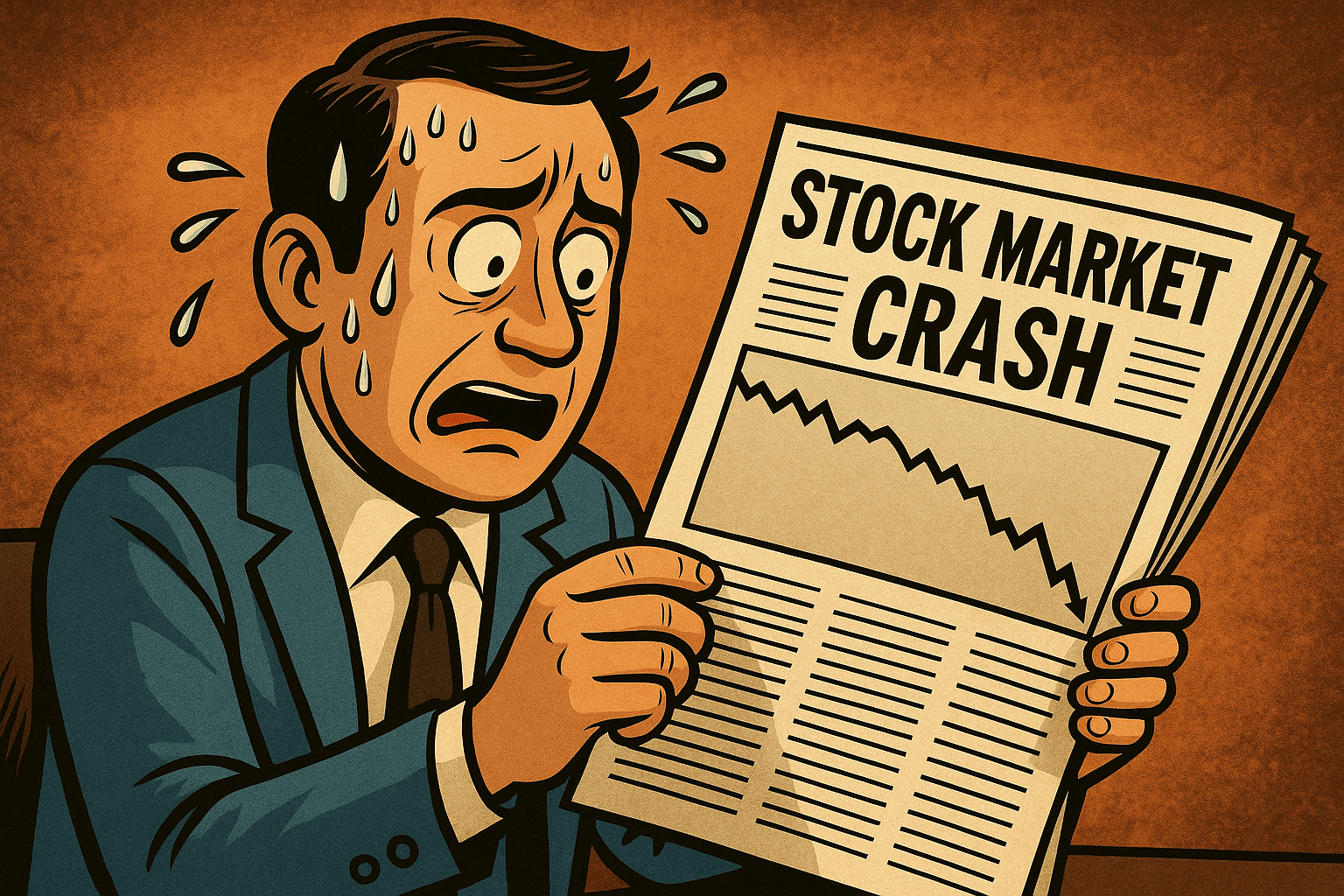
Source: Image generated by OpenAI’s DALL-E
Let me give you an example of how angertainment can cause a stir:
- Back in January 2023, permabear investor Michael Burry appeared to believe that a catastrophe was imminent.
- That’s when he tweeted an ominous message.
- It went like this…
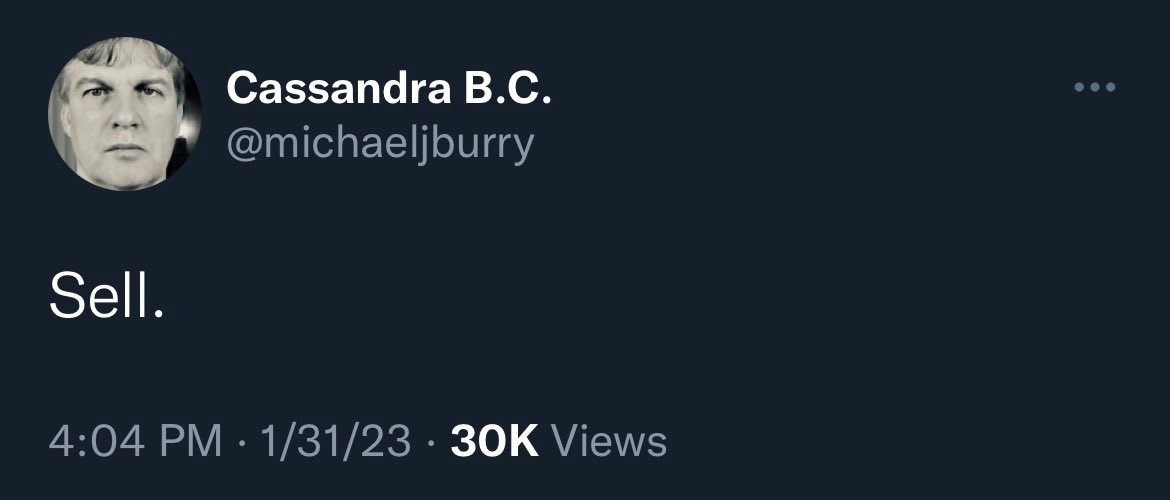
Source: New Trader U
Scary, huh?
- Certainly, it was enough to generate an intense emotional reaction. Pundits and punters alike felt unsettled by this cryptic message. They speculated and argued over its precise meaning.
- Was a market crash coming? Did Burry have access to some secret knowledge about the future? What did he know that the rest of us didn’t?
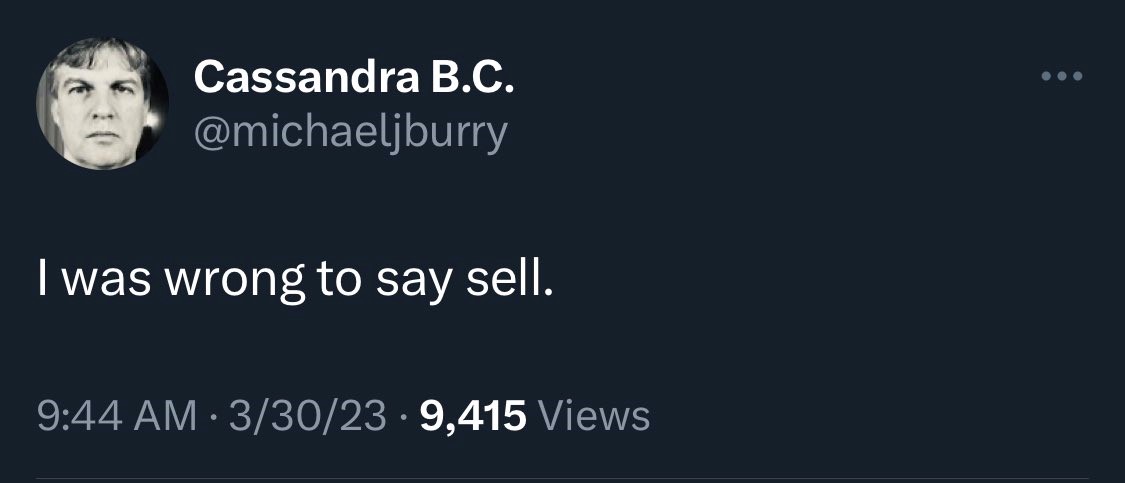
Source: Earnings Hub / X
Well, as it turns out, Burry didn’t know much of anything at all.
- In March 2023, Burry appeared to backtrack. He expressed regret for the controversy he had caused. He deleted his tweets, but not before his message had already spread far and wide.
- Despite Burry’s pessimism, no crash happened. By the end of 2023, the S&P 500 had risen by over 24%. It turned out to be a bullish year.

Source: New York Post
Of course, Michael Burry wouldn’t be the last one to predict a market disaster. In December 2023, Harry Dent — another permabear — announced that the apocalypse was almost upon us.
- He said that house prices would collapse by 50%, while the stock market would plunge by up to 90%.
- His forecast was so grimly precise. This was going to be worse than the Global Financial Crisis. Worse, even, than the Great Depression.
- Dent declared: ‘If I’m right, it is going to be the biggest crash of our lifetime, most of it happening in 2024. You’re going to see it start and be more obvious by May.’
- Pretty bold claim. But — oh boy — you can already guess what happened next. May 2024 did come around. And…nothing happened. Absolutely nothing.
- The sun continued to rise. The birds continued to sing. And the S&P 500 climbed over 23% by the end of the year. Yet another bull run.
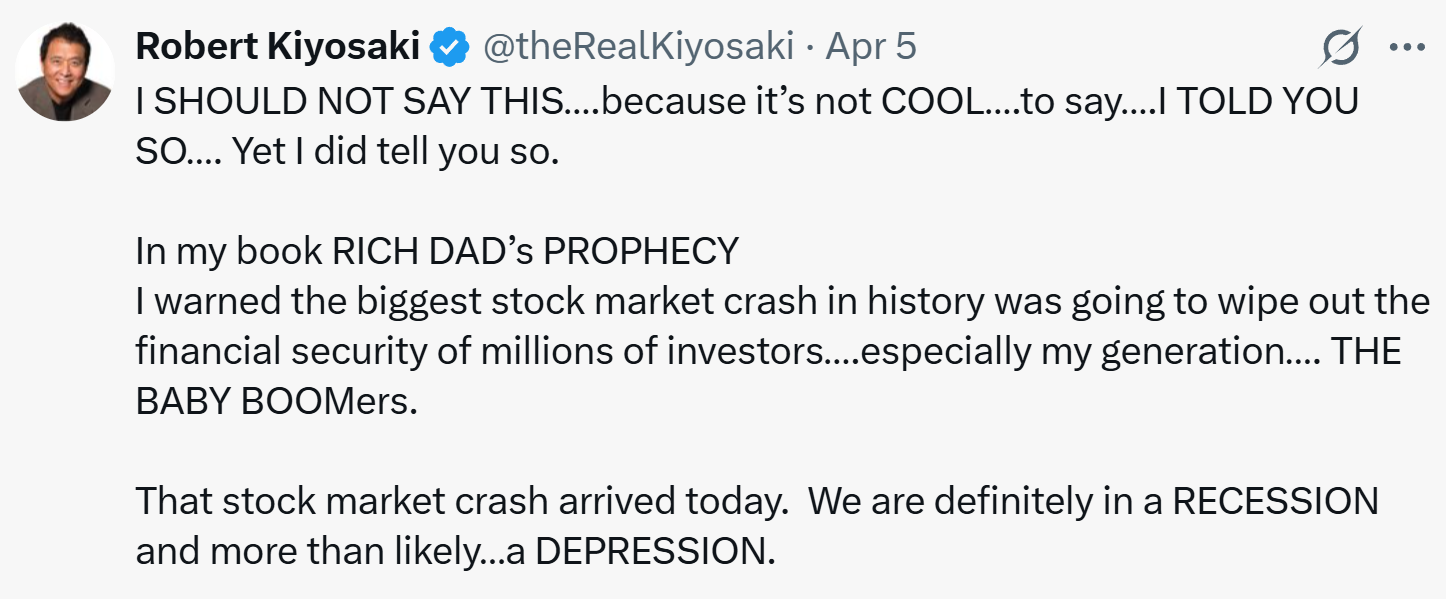
Source: Robert Kiyosaki / X
However, predictions of doomsday never quite die, do they? More recently, we’ve had Robert Kiyosaki — the most legendary permabear of them all — making a prophecy of his own.
- This happened in April 2025, in the wake of the Liberation Day tariff announcement.
- Emotions were running high. Market volatility was peaking. And Kiyosaki used this as a chance to declare that an epic economic meltdown was upon us. Our financial security was going to be wiped out in a blink. Guaranteed!
- But — ahem — spoiler alert: Kiyosaki was wrong. In retrospect, we now know that the Liberation Day drama was just a garden-variety correction. The market proved to be resilient, bouncing back strongly.
- Indeed, despite the fearmongering, the S&P 500 is now up over 30% from its April low. So far, no economic depression in sight.
Now, interestingly enough, I’ve observed that making a failed prediction doesn’t actually harm the reputation of a permabear. If anything, it actually enhances and elevates their reputation.
- How come? Well, for someone like Robert Kiyosaki, making a doomsday prophecy is a cheap way of generating publicity. It’s urgently compelling. It draws people in. It holds them captive.
- But this does beg the question: why do people keep listening to him even though he keeps getting it wrong?
- Well, perhaps the best answer I’ve heard is this one: ‘I’m going to continue following Kiyosaki because I want to see if he gets it right this time.’
- Contradictory? Oh yeah. But that’s human nature for you. People love suspenseful storytelling — even if it scares them.
However, if we choose to look beyond the horror-movie jump scares, here are some sober questions to consider:
- Is the stock market truly as fragile as the permabears claim?
- Is it really on the brink of collapse?
- Or…has the fear been oversold as angertainment?
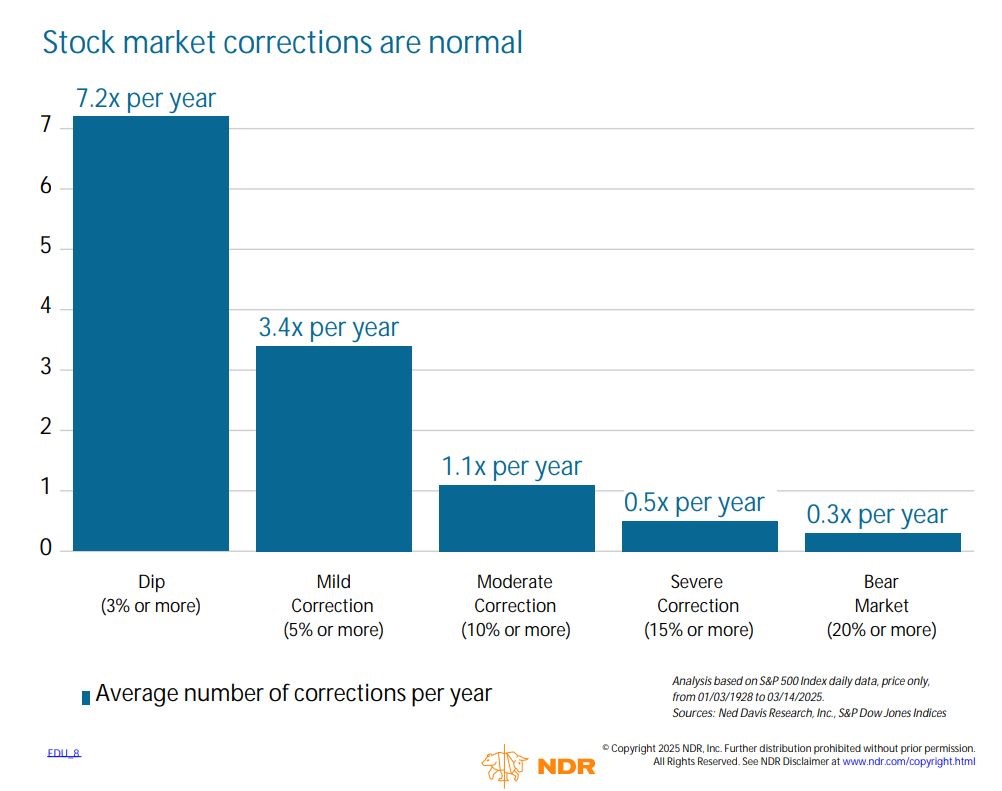
Source: Brian Salcetti / LinkedIn
Well, history tells us that dips and corrections are actually a regular part of the market cycle. In any given year, you can expect the following events to happen:
- Seven declines of at least 3%.
- Three declines of at least 5%.
- One decline of at least 10%.
Yes, dips and corrections are surprisingly common. They happen every single year. This means that each time the permabears use the word ‘crash’, they are probably overselling the fear.
- If you choose to look past the fear, you’ll find that volatility is normal and healthy. It’s how the market catches its breath, consolidates its momentum, before gaining renewed energy to push higher.
- But what about the longer-term picture? Is it good? Or is it bad?
- Well, Ryan Detrick from Carson Group provides some clarity here…
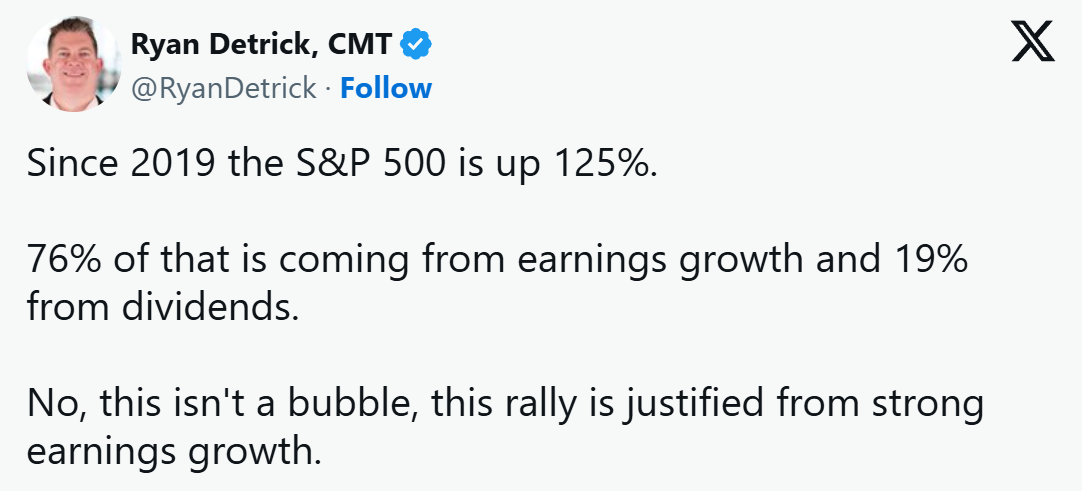
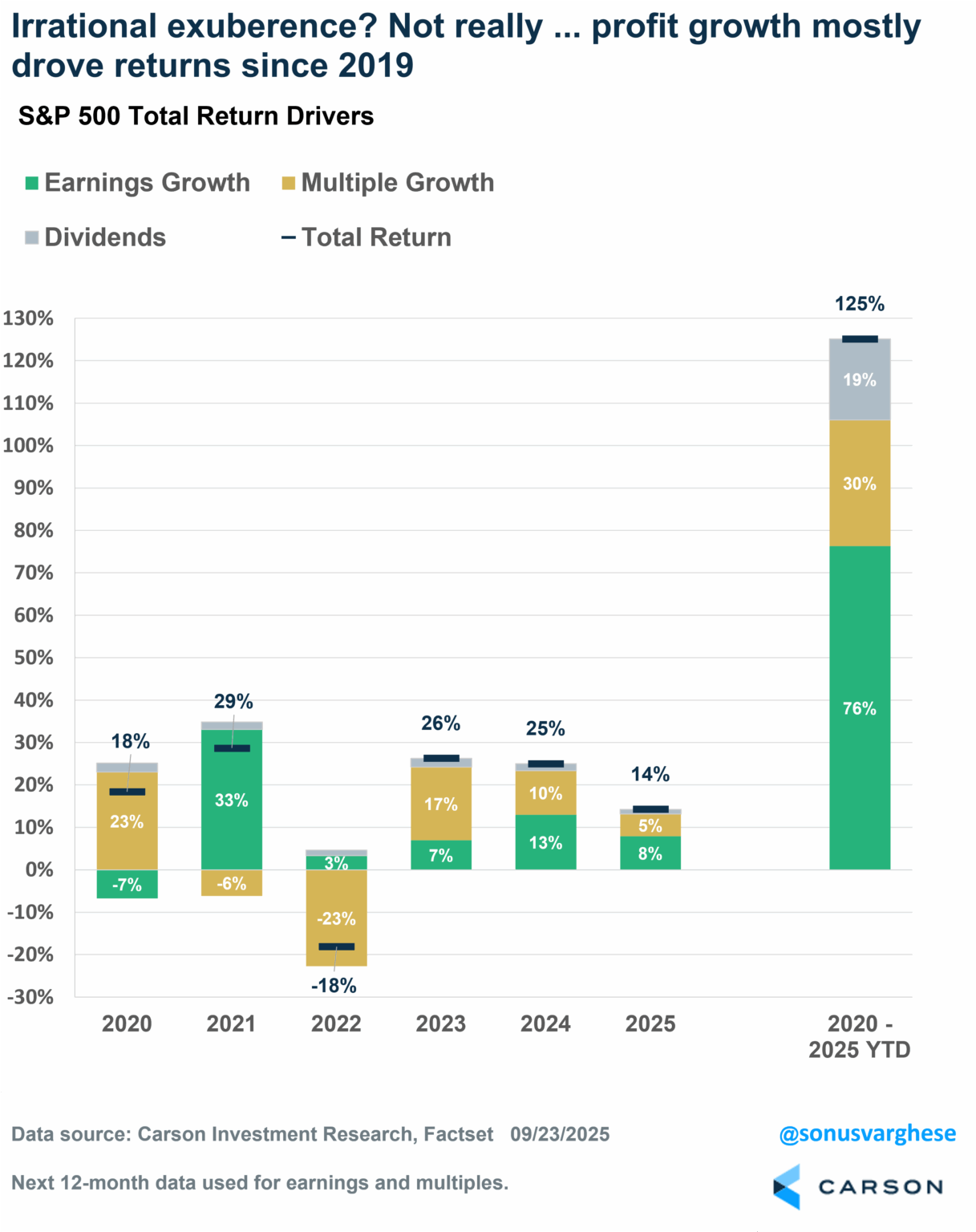
Source: Ryan Detrick / X

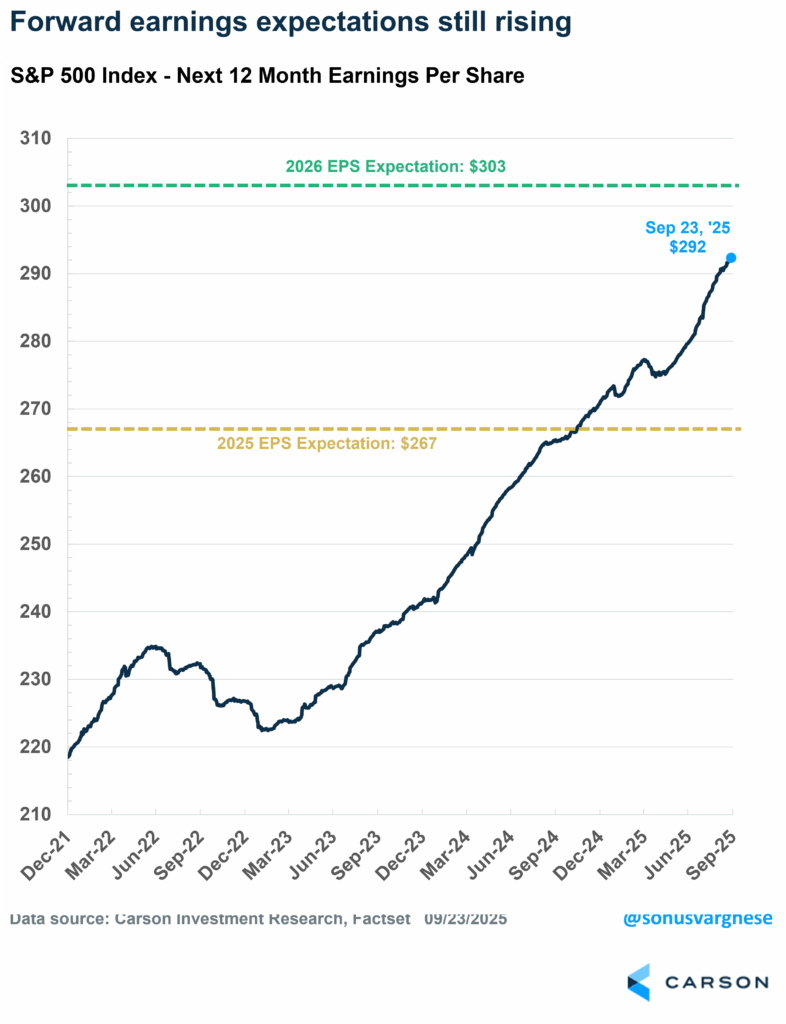
Source: Ryan Detrick / X
Yes, the permabears will tend to talk about how the S&P 500 is over-stretched and over-extended. And that’s why they keep insisting that a meltdown is about to happen.
- But here’s a contrarian opinion. As expensive as the S&P 500 may be, it’s actually not expensive without a reason. In fact, when you look closer, you will find that most of the S&P 500’s expansion over the past five years has been driven by growth in profitability, on a compounded basis.
- Surprisingly enough, a technical analysis reveals that American corporate margins are actually at their highest level since 1945.
- In other words, American companies really do deliver in terms of productivity and efficiency. They are on a roll in terms of forward momentum. Therefore, bullish investors are backing them accordingly. Premium stock prices are a reflection of premium profitability.
- So the real question, then, is this: can such American exceptionalism continue to prevail? Can America continue to advance, despite what the critics say?
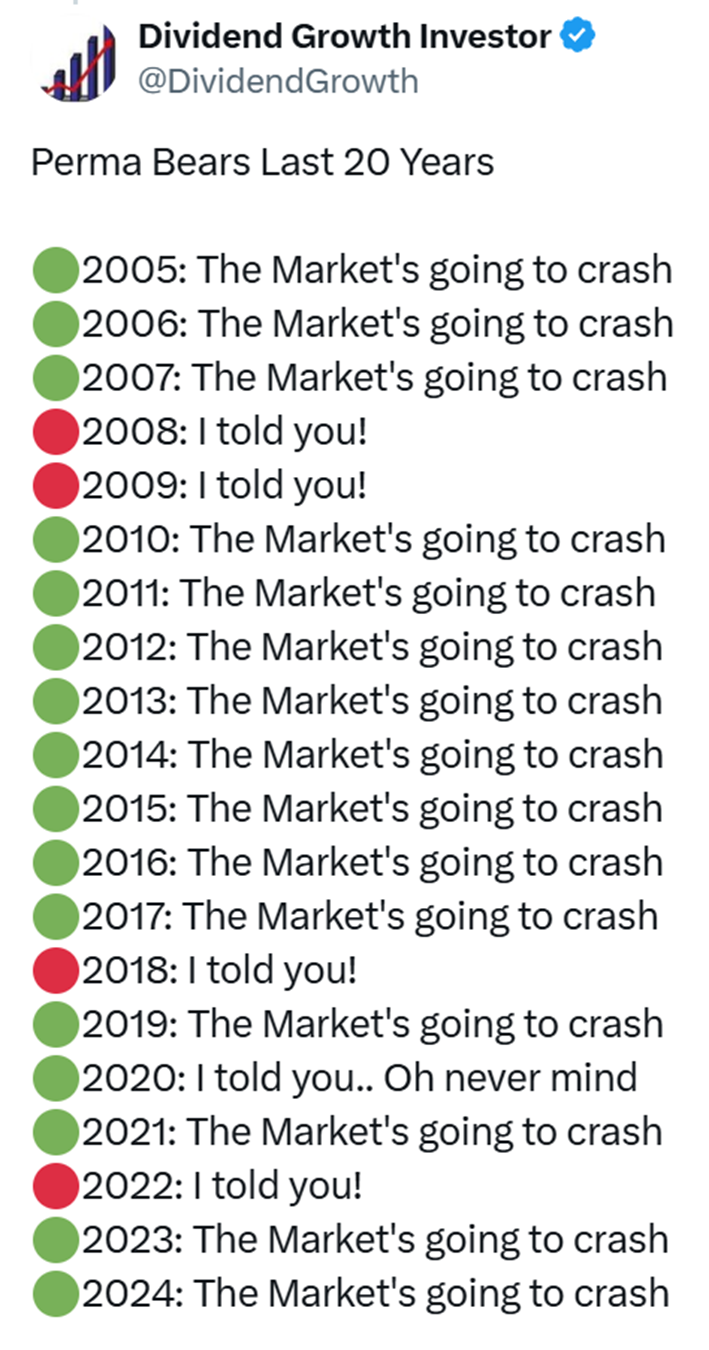
Source: Dividend Growth Investor / X
Well, given that we live in a world of 24/7 streaming media, it’s never been easier to spread fear. To spread anxiety. To spread despair. The cynics will give you a million reasons why staying invested is a bad idea.
- But still, I’m choosing to look beyond the noise. What do I place my faith in? Well, I place my faith in the nature of the market itself.
- The market exists on its own terms. It is a wild animal. Fierce. Untamed. Unchained. It’s a force of nature with a primal will, hungering only for growth and yield. And it will pursue that hunger with a pure, single-minded focus.
- The market is neither Democrat nor Republican. It is neither liberal nor conservative. It is completely neutral. Completely unbiased. It serves only as the personification of millions of entrepreneurs, who are toiling day and night, solving existential problems, powering forward.
- What’s the opposite of human fear? Well, human courage. To me, that alone is worth the price of admission. After all, short-term pessimism shouldn’t get in the way of long-term optimism.
- The fearmongers will keep predicting the end of days. But courageous investors will keep investing anyway. And I believe, over the long run, it’s the courageous investors who will keep on winning.
You need to act courageously now
So, are you still listening to the bears?
Are you still following their prophecies of doom?
Well, it might be time to reconsider.
Despite the recent bullish upswing, we are still seeing opportunities to buy into high-value assets at a sharp discount. It’s not too late to start investing for the next stage of the cycle.
Right now, our Wealth Morning Managed Accounts are designed for Eligible and Wholesale Investors who need a Quantum Income Strategy to protect and grow their wealth.
For our target client, we are focused on securing strong dividend income of $50,000 or more per year (depending on capital and market conditions).
Ask yourself: is this something you urgently need to act on?
Come talk to us.
🎯 Click here to book a consult with us and find out more about our Quantum Income Strategy.
Regards,
John Ling
Analyst, Wealth Morning
(This article is the author’s personal opinion and commentary only. It is general in nature and should not be construed as any financial or investment advice. Wealth Morning offers Managed Account Services for Wholesale or Eligible investors as defined in the Financial Markets Conduct Act 2013.)

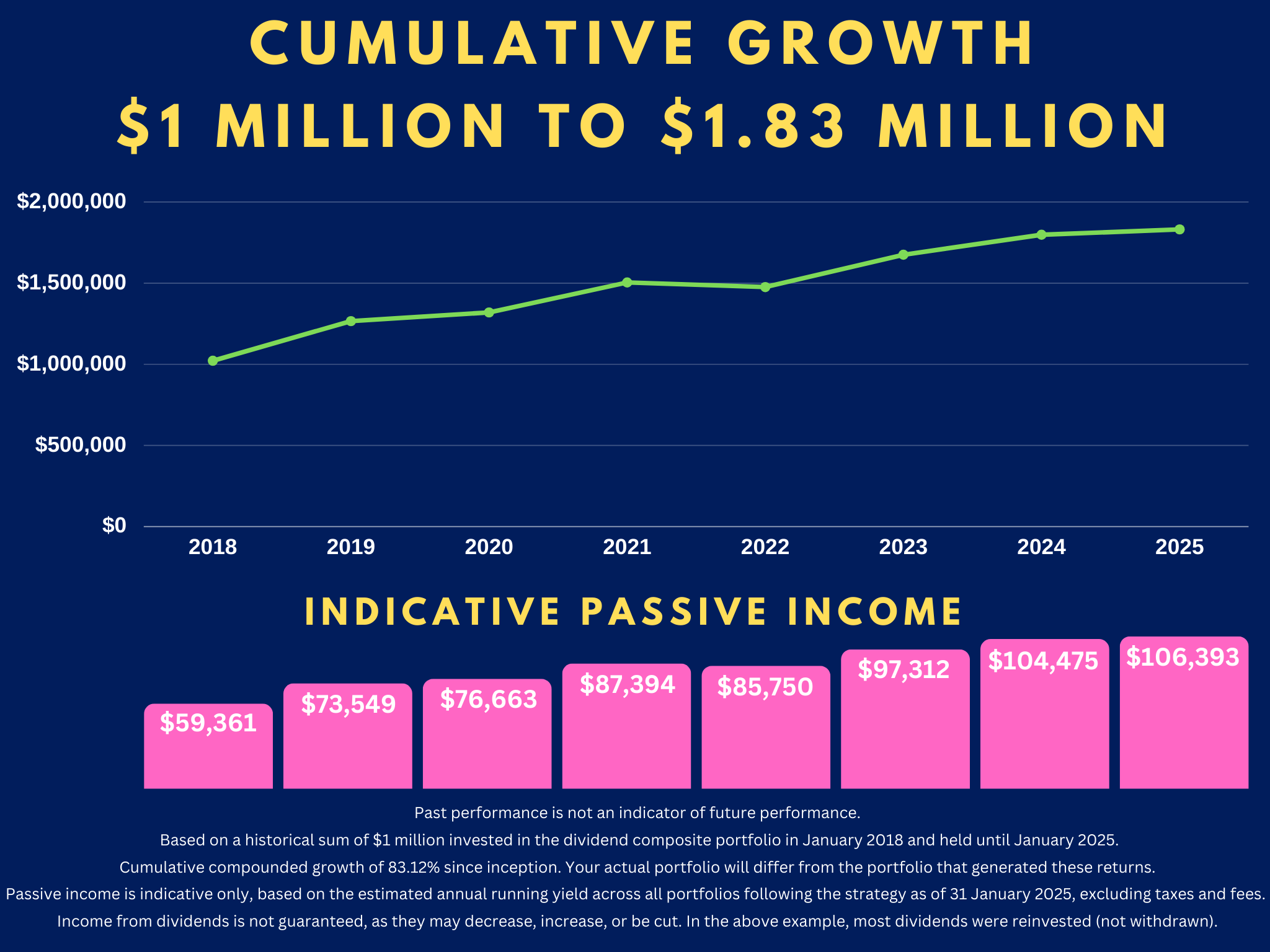




John is the Chief Investment Officer at Wealth Morning. His responsibilities include trading, client service, and compliance. He is an experienced investor and portfolio manager, trading both on his own account and assisting with high net-worth clients. In addition to contributing financial and geopolitical articles to this site, John is a bestselling author in his own right. His international thrillers have appeared on the USA Today and Amazon bestseller lists.